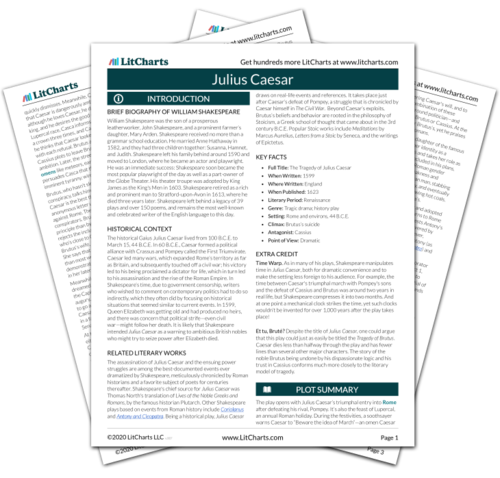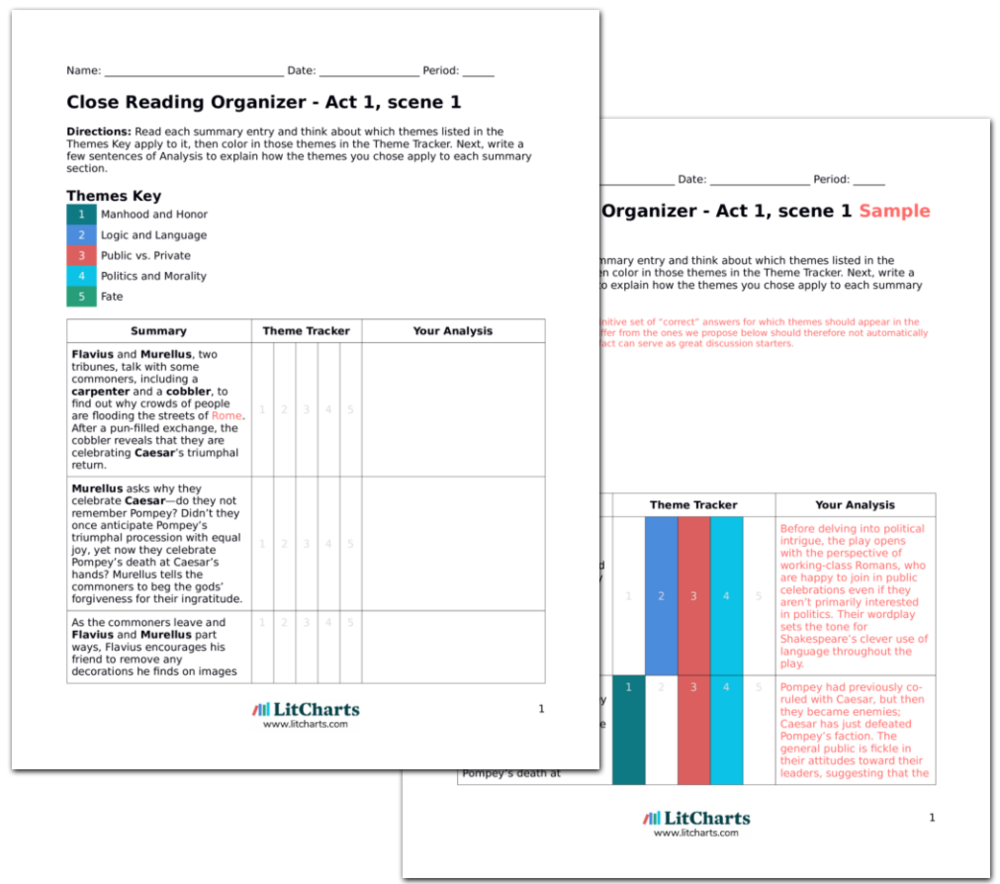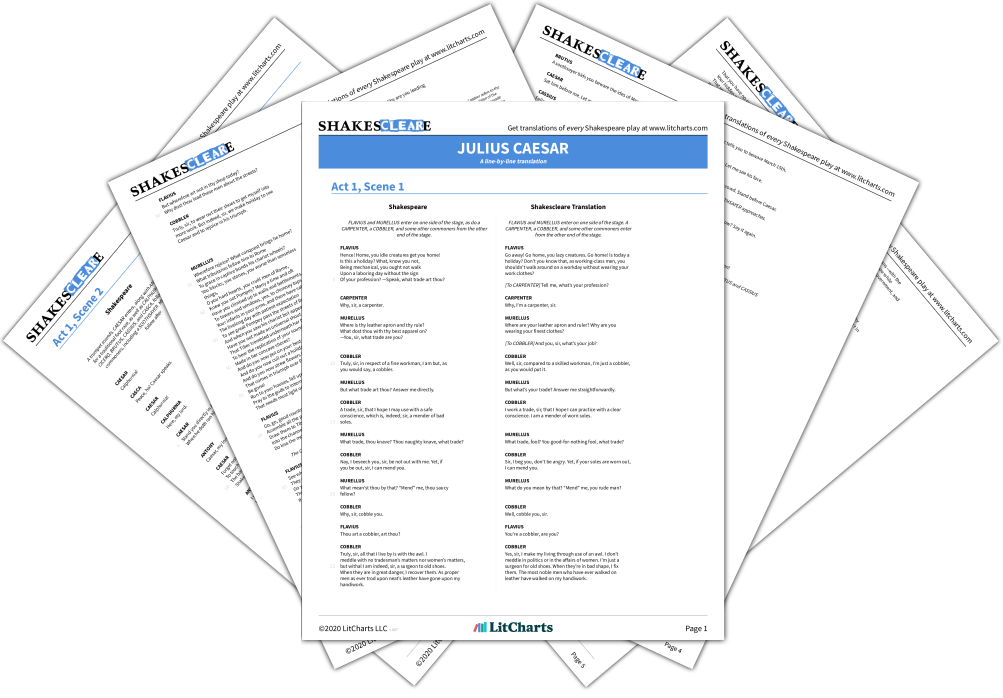![]()
LitCharts assigns a color and icon to each theme in Julius Caesar, which you can use to track the themes throughout the work.
![]()
![]()
![]()
![]()
![]()
Flavius and Murellus , two tribunes, talk with some commoners, including a carpenter and a cobbler , to find out why crowds of people are flooding the streets of Rome . After a pun-filled exchange, the cobbler reveals that they are celebrating Caesar ’s triumphal return.
Before delving into political intrigue, the play opens with the perspective of working-class Romans, who are happy to join in public celebrations even if they aren’t primarily interested in politics. Their wordplay sets the tone for Shakespeare’s clever use of language throughout the play.
Active Themes![]()
![]()
![]()
Murellus asks why they celebrate Caesar —do they not remember Pompey? Didn’t they once anticipate Pompey’s triumphal procession with equal joy, yet now they celebrate Pompey’s death at Caesar’s hands? Murellus tells the commoners to beg the gods’ forgiveness for their ingratitude.
Pompey had previously co-ruled with Caesar, but then they became enemies; Caesar has just defeated Pompey’s faction. The general public is fickle in their attitudes toward their leaders, suggesting that the coming drama surrounding Caesar will be more like distant entertainment that doesn’t touch commoners’ daily lives.
Active Themes![]()
![]()
![]()
As the commoners leave and Flavius and Murellus part ways, Flavius encourages his friend to remove any decorations he finds on images of Caesar . Murellus hesitates, given that it’s the feast of Lupercal, but Flavius tells him that doesn’t matter. They agree to drive other commoners off the streets so the popular enthusiasm won’t go to Caesar’s head.
Lupercal was an ancient Roman feast of purification and fertility, so Murellus fears offending the gods. But for Flavius, the bigger concern is that Caesar might become arrogant, using the support as an excuse for seizing greater power.
Active Themes![]()
![]()

“Would not have made it through AP Literature without the printable PDFs. They're like having in-class notes for every discussion!”
Get the Teacher Edition
“This is absolutely THE best teacher resource I have ever purchased. My students love how organized the handouts are and enjoy tracking the themes as a class.”
Julius Caesar in Plain English
“Every teacher of literature should use these translations. They completely demystify Shakespeare. Students love them!”
Copyright © 2024 All Rights Reserved Save time. Stress less.AI Tools for on-demand study help and teaching prep.
 Quote explanations, with page numbers, for over 44,324 quotes.
Quote explanations, with page numbers, for over 44,324 quotes. PDF downloads of all 2,003 LitCharts guides.
PDF downloads of all 2,003 LitCharts guides. Expert analysis to take your reading to the next level.
Expert analysis to take your reading to the next level. Advanced search to help you find exactly what you're looking for.
Advanced search to help you find exactly what you're looking for.
 Expert analysis to take your reading to the next level.
Expert analysis to take your reading to the next level. Advanced search to help you find exactly what you're looking for.
Advanced search to help you find exactly what you're looking for.